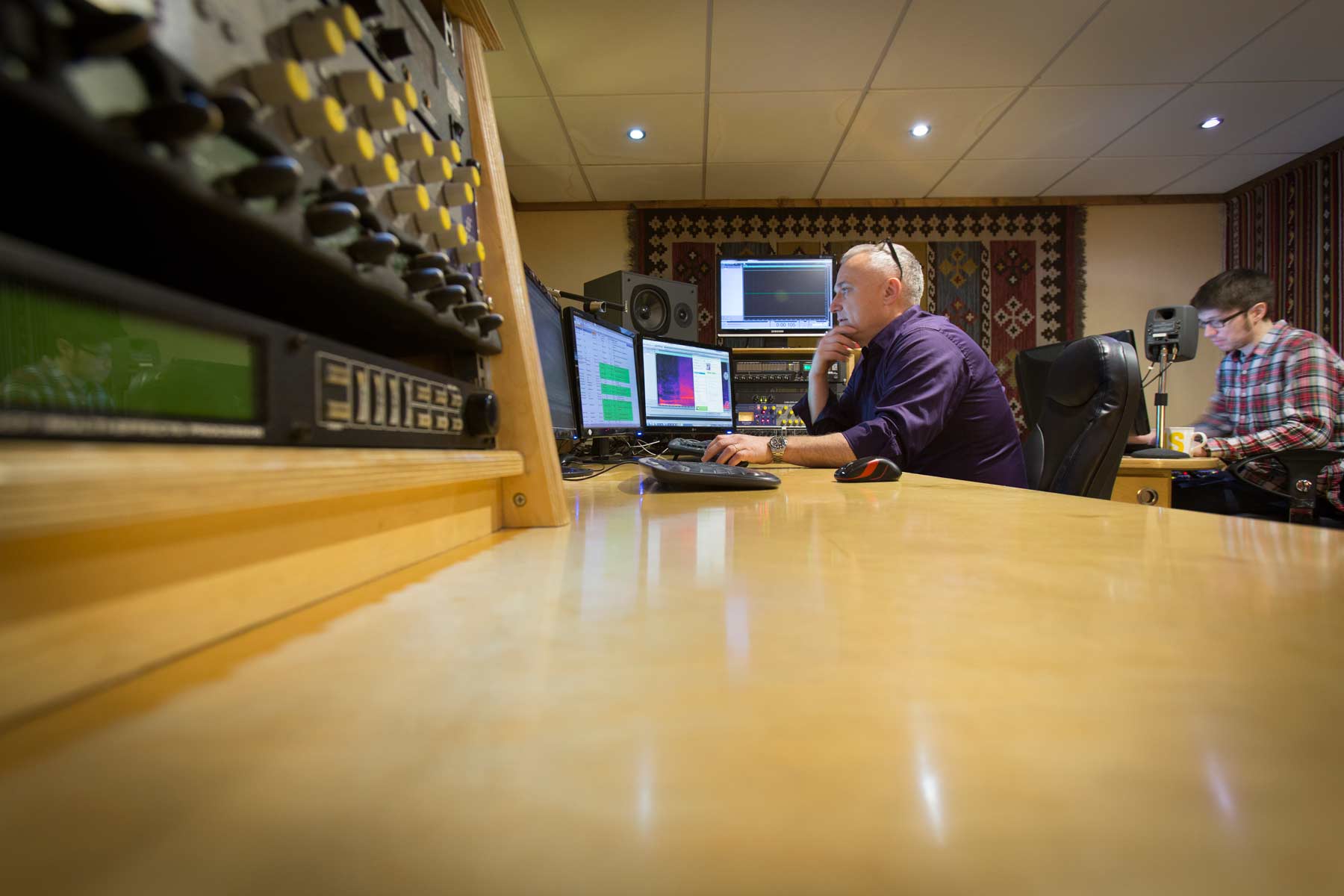Career Guide: Game Audio Roles Explained

After a short break when GDC took over, our game careers series is back. Each piece in the series so far has looked broadly at a different game career, weighing up the opportunities, challenges, routes to employment and more. You can find our overall guide – which details the careers we've covered and those we're set to look at in the future – right here.
These pieces should be interesting if you're trying to get a family member engaged with their education, have somebody at home with their heart set on working making games, or if you just want to learn more about how games are made. yourself.
This week, we're looking at the many types of role that come under the umbrella term 'game audio'.
The role:Creating game audio involves many different specialities, so we'll stick to the most prolific here.
There are composers, of course, that create musical scores for games, sometimes working with orchestras or bands, and there are those that create purely computer-generated music. Many game composers, though, do a little of both. Sometimes game composers have the unique task of creating dynamic music that changes in time with what the player is doing in game. It's a unique and exciting challenge.
Elsewhere, there are those that create or record sound effects That might involve field recording – perhaps rigging up a racing car with microphones to get real engine sounds as it tears around a track – or foley – where real sounds are created using various objects; usually to create the sound of something else. And, of course, some game audio specialists create and simulate sound effects using computer software, instead of recording existing or created sounds.
Those in game music and game sound effects will also likely 'mix' and prepare sound effects so they serve their function within a game. That more technical work is related to that of sound engineers, who might build special software 'tools' used for making and placing game sound effects, and handle the technical and technological process of audio working properly within a game – and with all the other parts of that game. Game sound, after all, is often as interactive as the graphics themselves. Sound engineers may also, for example, work out how sound effects within a game echo off the walls of a building in that game, or how a sound of a game vehicle changes with regard to its position relative to the player.
Then there is the work of recording and preparing voice overs provided by actors – also known as 'VO' work. VO usually includes directing the actors, helping them understand their character. It will often also see you paired with a sound engineer or mixer who works with you capturing dialogue.
The opportunity:There are a lot of roles available providing and creating sound for video games – both in terms of the diversity of roles and the number of positions out there. At a large game studio you might get a very specific audio role in a vast audio team... and at a small studio you might handle all of the above.
Game audio roles are usually very creative, and the technology and expertise moves forward very fast, so you can always expect a fresh challenge. And with the arrival of technologies that fully enclose players like VR, there's a whole lot new to be discovered in making game audio really push the potential of whats possible in 3D spaces.
As for what you might be paid, the diversity of types of game audio role make it hard to be specific, but you can certainly earn a decent living. According to the most recent Develop Salary Survey, a junior game audio professional earns an average yearly wage of £29,736 globally. A senior game audio professional, averages £43,250 annually across the world.
The challenge:Many people working in other audio specialities – perhaps in film, television, training software or the music industry itself – have skill sets that make them valuable to those needing expert game audio. As such, while the number of roles is high, so is the competition.
The qualifications:Some traditional music education will be a great foundation, as will quantifiable experience or qualification with various instruments. And as mentioned above, previous audio-related experience in any field – not just games – will be a great boon. A music, audio or sound design-related university level degree will also be a great help, but there are those that have instead qualified in game development and design at that level, while keeping up musical training as an extra curricular task. Certainly, demonstrating an enthusiasm for and knowledge of not just music and sound – but also the game development process – will really help you stand out.
And, as ever, a portfolio is really important. Samples of published work will be great, whether in games or beyond. But – whether you've not had any work published or don't have a specific professional game project to show – it will also help if you have samples of what you can do with audio created specifically for games. You could create your own audio for an existing game purely as a proof of concept, or you could make sound content for a new game with a team of friends who are building the rest of the game. You could do that in your spare time, or as part of, for example, a university course or local game jam.
IMAGE CREDIT: UK game audio voice recording specialists OM





